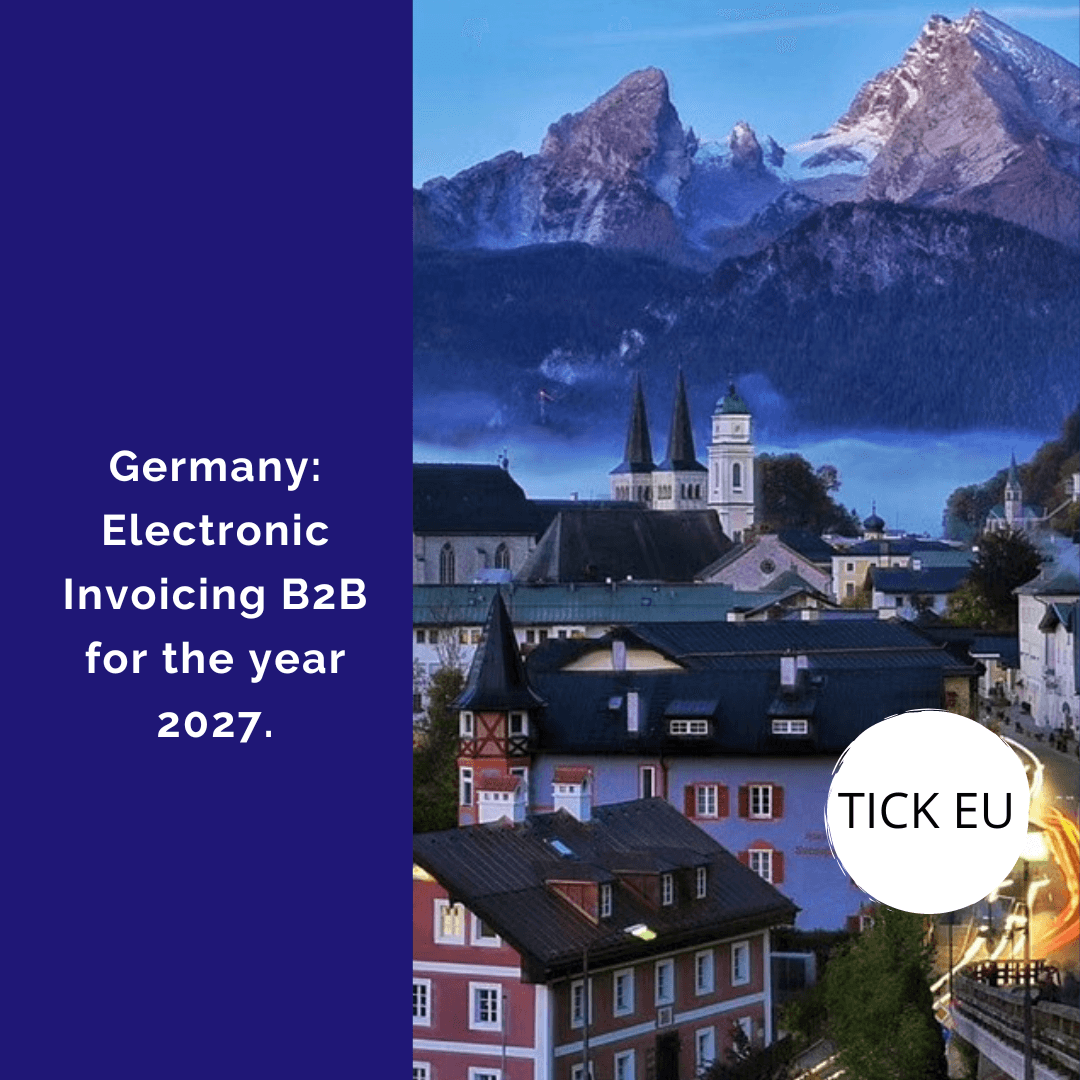Germany: Electronic Invoicing B2B for 2027
Following the approval by the “Bundestag,” the “Bundesrat” adopted the Wachstumschancengesetz (Growth Opportunities Act) on March 22, 2024, according to which electronic invoicing B2B will become mandatory, starting in January 2027 for companies with turnovers exceeding €800,000, and in January 2028 for companies with turnovers below €800,000.
However, all companies must be able to receive electronic invoices starting from January 2025.
Germany is actively preparing for the B2B electronic invoicing initiative under the Wachstumschancengesetz, aimed at promoting business growth, simplifying taxes, and ensuring tax equality.
The German government’s plan aligns with the European proposal VAT in the Digital Age (ViDA), intending to use the European standard for electronic invoicing EN 16931. The law does not include the provision of data to the tax authority.
It’s worth noting that the B2B electronic invoicing system in Germany is decentralized across individual states (Länder), which poses significant challenges in implementing a uniform B2B invoicing system.
Implementation Schedule for B2B Project
The Ministry of Finance (BMF) proposed an implementation schedule, which involves receiving, issuing, and using different formats.
- 01/01/2025: All companies must be able to receive e-invoices. Issuing e-invoices is voluntary. It is important to emphasize that there will be no national centralized platform.
- 01/01/2027: Mandatory issuance of e-invoices for companies with annual turnovers exceeding EUR 800,000.
- 01/01/2028: All companies must issue B2B e-invoices. Allowed formats in various phases: 01/01/2025: Paper-based: E-invoice compliant with EN 16931, which defines the semantic model related to invoice data: National formats supported in Germany: XRechnung and ZugFeRD. Other formats (XML, EDIFACT, X12, etc.).
- 01/01/2027: Paper-based: allowed under specific conditions E-invoice compliant with EN 16931, which defines the semantic model related to invoice data: National formats supported in Germany: XRechnung and ZugFeRD. Other formats (XML, EDIFACT, X12, etc.): allowed under specific conditions.
- 01/01/2028: E-invoice compliant with EN 16931, which defines the semantic model related to invoice data: National formats supported in Germany: XRechnung and ZugFeRD. Other formats (XML, EDIFACT, X12, etc.) are allowed provided they comply with the EN16931 format.
B2G Electronic Invoicing in Germany
Since April 18, 2020, German states (Länder) have been required to accept electronic invoices in accordance with EU Directive 2014/55/EU. Progress in adopting electronic invoices depends on each individual state (Bundesland), which issues its own legal decree specifying rules regarding communication systems, formats, and access points. The only universal requirement is the availability of electronic invoices via Peppol in all cases.
Upcoming states that will soon require their suppliers to generate electronic invoices are Rhineland-Palatinate from January 1, 2024, and Hesse in April 2024.
Check the latest information on the status of B2G invoicing implementation in the states of Germany.


